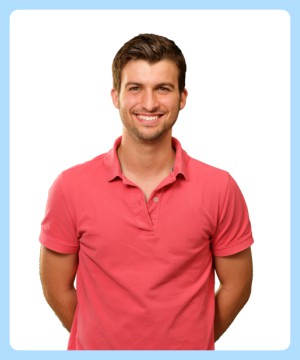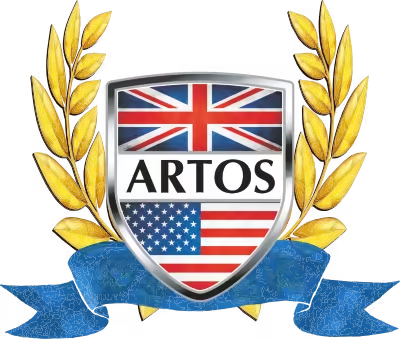Test 5 sprawdza angielski na poziomie C-1 i kwalifikuje na poziom C-2.

Zanim zaczniesz pisać test diagnostyczny, uzupełnij swoje dane w rubrykach powyżej.
Wpisz swoje imię i nazwisko w rubryce Name oraz adres mailowy w rubryce Email.
Jeżeli chcesz, możesz podać telefon kontatkowy w rubryce Telephone.
Dzięki podanemu adresowi email (lub telefonowi) będziemy się mogli z Tobą skontaktować i pomóc w wyborze kursu.
Jeżeli masz problem z udzieleniem odpowiedzi na niektóre pytania, możesz te pytania pominąć. Jednakże najlepiej będzie, jeżeli udzielisz odpowiedzi na możliwie największą ilość pytań.
Na końcu testu jest pytanie antyspamowe np. 'Ile oczu ma człowiek'. Odpowiedz na nie, wpisując odpowiednią cyfrę i wciśnij przycisk 'Check my Results'.
Part 2: Vocabulary Cloze
|
Medicine was becoming an accepted science in the 15th century and the old moral warnings against overeating (1) ______ to practical advice on maintaining health. Yet no one really knew what a healthy weight was. And in any case, the majority of people still had trouble getting enough to eat, never mind about eating too much. And even if doctors (2) ______ patients might be eating and drinking too much, they weren’t willing to risk losing fees by telling them so. The attitude was changed by an extraordinary Italian, Luigi Cornaro (1464 - 1566), who was bed-bound, severely overweight and suffered from gout and digestive (3) ______. His doctors all agreed his outlook was poor and pressed remedies upon him. At the age of 40 he decided that he would no longer line the doctors’ pockets with gold. (4) ______ he would throw their medicines away, lead a (5) ______ life, and live to great age.
|
Part 3: Key-Word Transformations
Paraphrase each ot the sentences with the suggested key words in such a way that the meaning is not changed.
| 1. The men had an argument over how to divide the inheritence. |
OUT |
| 2. Jack applied for the job at Thomas Ltd. and was rejected. |
DOWN |
| 3. You must wear plain clothes since you don't want anybody to look at you. |
UNWANTED |
| 4. You can try to open it with that key but it won't work. |
POINT |
| 5. Your sister looks exactly like Amanda Robins. |
RESEMBLANCE |
Part 4: Word Forms
Transform the words in italics into correct forms so that they complete each of the sentences.
Part 7: Text Reading
Read the text and the statements below. Decide if the statements are true, false or perhaps the information is not given in the text.
PITY the poor science writer. Richard Feynman, the most brilliant and influential physicist of our time, once said: "If you want to appreciate nature, it is necessary to understand the language she speaks in." That language is, of course, mathematics, which, Feynman noted, is "hard for some people".
Tough luck. "All the intellectual arguments that you can make will not communicate to deaf ears what the experience of music really is," he went on. "In the same way, all the intellectual arguments in the world will not convey an understanding of nature to those of 'the other culture'."
Let's call this Myth No 1: that science is a place apart; alien, the preserve of specialists, incomprehensible to the lay culture. If you don't have a ticket, you can't get in.
Myth No 2 is more subtle. It is that the principal task of the science writer is to popularise, to translate knowledge from one language (mathematics) to another (in this case, English), however imperfectly.
Myth No 3 is a cousin of the others: that the science writer must fall back on metaphor and poetry, like puffs of gauze, whereas the scientist builds with numbers and equations, like steel rods.
Like all good myths, they rest on half-truths. Mathematics is the language that nature speaks in, and much of science has grown distant from our common-sense understanding. Certainly, a science writer is haunted by the spectre of compromise, the feeling of having to filter a lush panorama through a flawed lens.
Part 8: Open Cloze
Complete the gaps in the text with one word each. Write the answers in the boxes below.
|
I can remember the first reading I attended, a long time ago. It wasn't even in a bookshop. At the venue - some hall, some large dusty room - we filed in and (1) ______ our seats. I was oddly apprehensive, and it wasn't just (2) ______ of the oppressive, humid warmth of the room, the big windows hot with summer evening sun; it wasn't (3) ______ the usual tense geniality disguising the edginess that arises when too many writers, or would-be writers, find (4) ______ in the same place at the same time. No, it was something to (5) ______ with the very occasion itself. This "reading" lark - it didn't feel right, it was strange and unsettling.
|
|
The author sidled self-consciously up to the lectern, then, in a monotone of surpassing dullness, he announced that, (6) ______ an ideal world, he would have read the entire novel to us this evening but that tonight (nervous stirrings in the audience), for regrettable but obvious (7) ______ of time, he would have to (8) ______ himself to a mere three or four chapters.
We got through it: time slowed to a torpid, snail-like crawl. Subjective aeons passed (9) ______ we were released to the pleasures of the buffet.
And all the while I kept saying to myself: what are we doing here? Why do we (10) ______ ourselves to this ordeal? This is not natural. It will never catch on..
|



